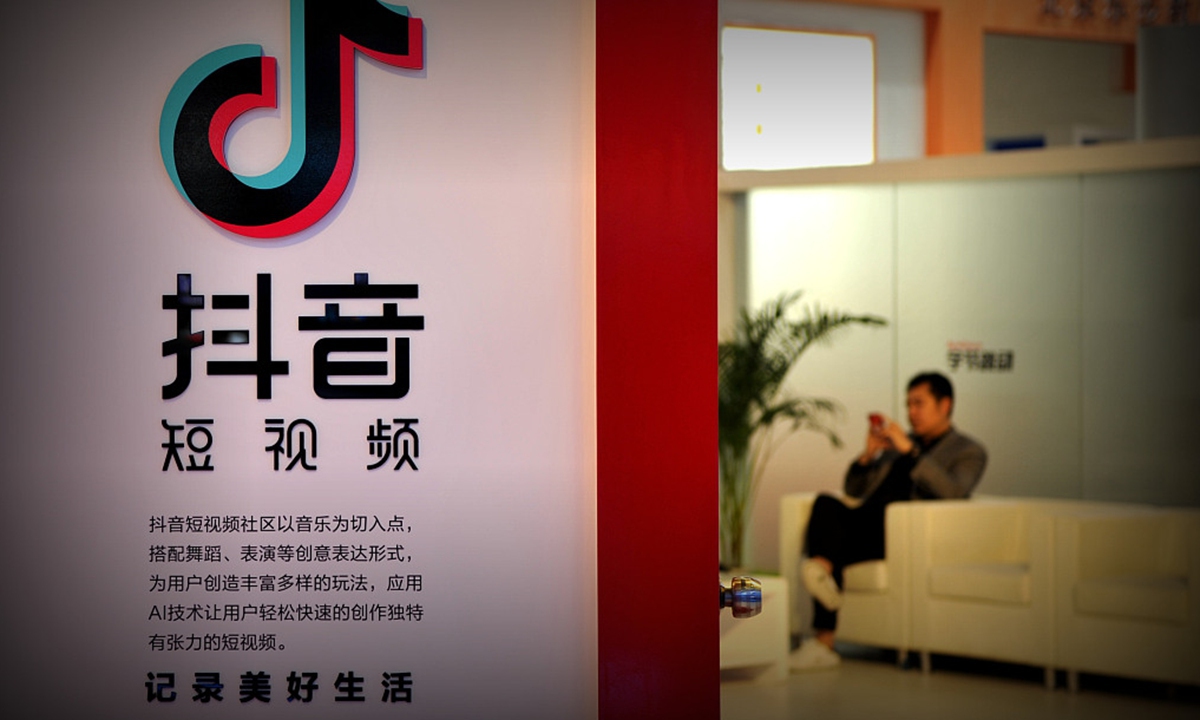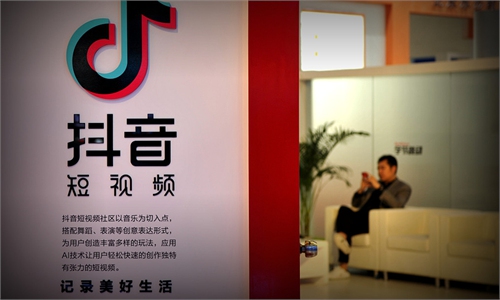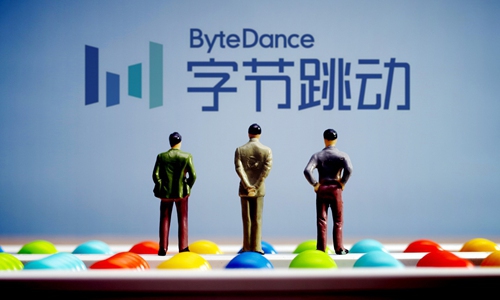Beijing IPR court accepts lawsuit between Douyin and Tencent over monopoly complaint

Douyin Photo:VCG
China's largest video-sharing platform Douyin, the Chinese version of TikTok owned by tech startup ByteDance, confirmed with the Global Times on Sunday that the lawsuit it filed against Tencent over monopoly claims has been accepted by a local court in Beijing.Douyin filed the complaint with the Beijing Intellectual Property Count (BIPC) against what it alleged a monopoly act by Tencent last Tuesday, being the first ever case of a domestic anti-monopoly lawsuit between two heavyweight internet platforms since the launch of a regulatory guideline for anti-monopoly acts in the economic sector at the end of 2020.
In a statement on Tuesday, Douyin alleged that Tencent had blocked its users from sharing content from Douyin on its social networking platforms WeChat and QQ, which constituted "the monopoly of abusing its market domination position as well as excluding and restricting competition".
Douyin appealed to the court to order Tencent to stop its monopoly practice, publish a statement removing negative impact caused by the act, and compensate Douyin's economic losses and reasonable expenses totaling 90 million yuan ($13.9 million).
In response, Tencent said in a statement last Tuesday that ByteDance's move is "maliciously framing it" and the company will countersue ByteDance for illegal infringement.
In another response to Tencent's statement, Douyin said that there is no basis for what Tencent claimed was "maliciously framing."
"The fact is that Tencent blocked Douyin and relevant products for more than three years, involving hundreds of millions of users for 'short video remediation, when Tencent itself launched more than 10 short video products of its own," the statement noted.
"We are optimistic about possible protracted litigation process because we are optimistic about justice and time, and these two are precisely what the monopolists like Tencent can never monopolize," Douyin stated.


